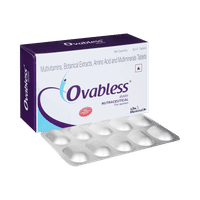Rs.20.40for 1 strip(s) (10 tablets each)
food interaction for GlyNasE-MF
alcohol interaction for GlyNasE-MF
pregnancy interaction for GlyNasE-MF
lactation interaction for GlyNasE-MF
food
alcohol
pregnancy
lactation
GlyNasE-MF Tablet should be taken with or after food.
GlyNasE-MF Tablet may cause stomach upset if taken on empty stomach
None
GlyNasE-MF Tablet may cause stomach upset if taken on empty stomach
None
CAUTION
Alcohol should be used with caution while taking GlyNasE-MF Tablet.
CAUTION
The safety of GlyNasE-MF Tablet during pregnancy has not been established. There are no adequate and well-controlled studies in pregnant women, and animal data on reproductive toxicity are insufficient. Your doctor will weigh the benefits and any potential risks before prescribing.
CONSULT YOUR DOCTOR
Information regarding the use of GlyNasE-MF Tablet during breastfeeding is not available. Please consult your doctor.
CONSULT YOUR DOCTOR
SALT INFORMATION FOR GlyNasE-MF
Glipizide(5mg)
Uses
Glipizide is used in the treatment of type 2 diabetes mellitus. It is used along with diet and exercise to improve blood sugar control in adults with type 2 diabetes.
How it works
Glipizide is an antidiabetic medication. It works by increasing the amount of insulin released by the pancreas in order to lower blood glucose.
Common side effects
Dizziness, Diarrhea, Nervousness, Tremors, Hypoglycemia (low blood glucose level), Flatulence, Headache, Nausea, Vomiting, Weight gain, Abdominal discomfort, Abnormal sensation, Vasculitis, Hypersensitivity, Abnormal liver function, Increased creatinine level in blood, Increased blood urea, Rash, Itching, Bullous dermatoses (skin disease characterized by presence of blisters), Liver failure
Metformin(500mg)
Uses
Metformin is used in the treatment of type 2 diabetes mellitus and polycystic ovarian syndrome (PCOS).
How it works
Metformin is an anti-diabetic medication (biguanide). It works by lowering glucose production in the liver, delaying the absorption of sugar (glucose) from the intestines, and increasing the body's sensitivity to insulin.
Common side effects
Diarrhea, Headache, Vomiting, Nausea, Flatulence, Indigestion, Vitamin B12 deficiency, Abdominal discomfort, Hepatitis (viral infection of liver), Drug eruptions, Lactic acidosis, Hypoglycemia (low blood glucose level)
SUBSTITUTES FOR GlyNasE-MF
44 Substitutes
44 Substitutes
Sorted By
 Rs. 17.34save 17% more per Tablet
Rs. 17.34save 17% more per Tablet Rs. 17.30save 17% more per Tablet
Rs. 17.30save 17% more per Tablet Rs. 22.03pay 2% more per Tablet
Rs. 22.03pay 2% more per Tablet Rs. 20.44save 3% more per Tablet
Rs. 20.44save 3% more per Tablet Rs. 26.01pay 27% more per Tablet
Rs. 26.01pay 27% more per Tablet
Expert advice FOR GlyNasE-MF
- Take it shortly before or with the first main meal of the day (usually breakfast). Avoid skipping meals.
- Be careful while driving or operating machinery until you know how Glipizide affects you.
- It can cause hypoglycemia (low blood sugar level) when used with other antidiabetic medicines, alcohol or if you delay or miss a meal.
- Always carry some sugary food or fruit juice with you in case you experience hypoglycemic symptoms such as cold sweats, cool pale skin, tremor and anxiety.
- Your doctor may check your liver function regularly. Inform your doctor if you develop symptoms, such as abdominal pain, loss of appetite, or yellowing of the eyes or skin (jaundice).
- Glipizide helps decrease high blood sugar level and avoid long-term complications of diabetes.
- Take it shortly before or with the first main meal of the day (usually breakfast). Avoid skipping meals.
- Exercise regularly, eat a healthy diet and take your other diabetes medicines (if prescribed) alongside.
- It can cause hypoglycemia (low blood sugar level) when used with other antidiabetic medicines, alcohol or if you delay or miss a meal.
- Always carry some sugary food or fruit juice with you in case you experience hypoglycemic symptoms such as cold sweats, cool pale skin, tremor and anxiety.
- Monitor your blood sugar level regularly while you are taking this medicine.
- Be careful while driving or operating machinery until you know how Glipizide affects you.
- Your doctor may check your liver function regularly. Inform your doctor if you develop symptoms, such as abdominal pain, loss of appetite, or yellowing of the eyes or skin (jaundice).
Frequently asked questions FOR GlyNasE-MF
Glipizide
Q. What is the best time to take Glipizide?
Take Glipizide before meals or exactly as instructed by your doctor. There is evidence stating that Glipizide works best at controlling post meal high blood sugar levels when taken 30 minutes before breakfast. So, if you are supposed to take it once daily, take it in the morning before breakfast with a glass of water.
Q. Is Glipizide the same as metformin?
No, Glipizide is not the same as metformin. Although both these oral medicines are used in the treatment of type 2 diabetes, the way they work to reduce the sugar levels are different. While Glipizide acts by increasing the secretion of insulin by the pancreas, metformin acts by improving the functioning and effectiveness of the insulin already available in the body.
Q. Is Glipizide bad for kidneys?
No, Glipizide is not harmful if your kidney function is normal. Any previous case of kidney problem should be informed to the doctor, so that the use of Glipizide can be assessed. This is done in order to analyze whether Glipizide can be given or not because it is principally excreted by the kidney. If you have kidney problems you will be started at a lower dose.
Metformin
Q. What does Metformin do exactly?
People with type 2 diabetes are not able to make enough insulin or respond normally to the insulin made by their bodies. When this happens, the concentration of sugar/glucose increases in the blood. Metformin acts in several ways to reduce the increased levels of sugar in blood. Metformin decreases glucose production from the liver and decreases absorption of glucose from the intestine after taking food while improving the sensitivity of the body organs and muscles towards insulin. This helps improve the uptake of glucose from the blood. It also helps your body to respond better to the insulin it makes naturally.
Q. Does Metformin cause weight loss?
Yes, Metformin has been shown to cause weight loss in people who are overweight or obese. It may also cause a modest loss in weight in those overweight and obese individuals who are at risk for diabetes. In addition, patients who are sensitive or resistant to insulin may also show weight loss. But, do not start taking this medicine for weight loss on your own. Consult your doctor for the same.
Q. What are the benefits of taking Metformin?
Metformin is one of the first medicines that is given to patients with high blood sugar levels. It helps control blood sugar levels. It promotes the body’s response to the insulin made by the pancreas, decreases the amount of sugar made by the liver and decreases the amount of sugar absorbed by the intestines. Unlike other oral antidiabetic medicines, Metformin when taken alone, rarely causes low blood sugar as it prevents the pancreas from secreting more insulin. In addition to being a great medicine to lower blood sugar levels, it also helps in controlling weight gain.























